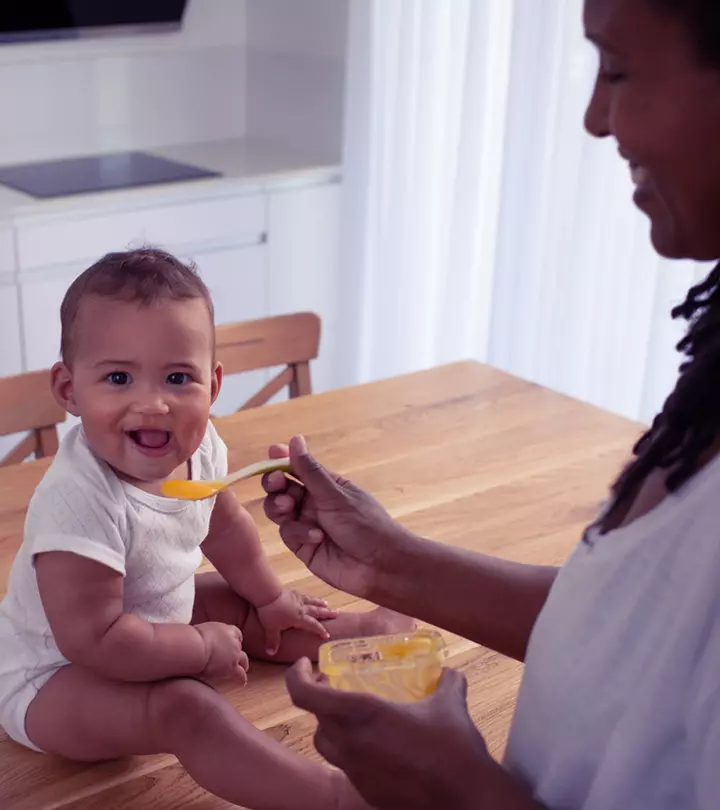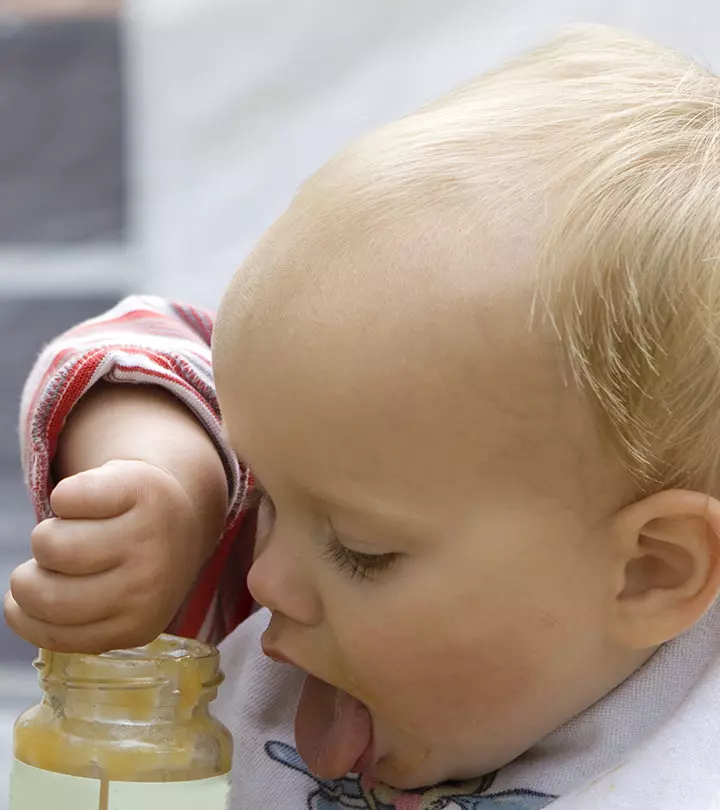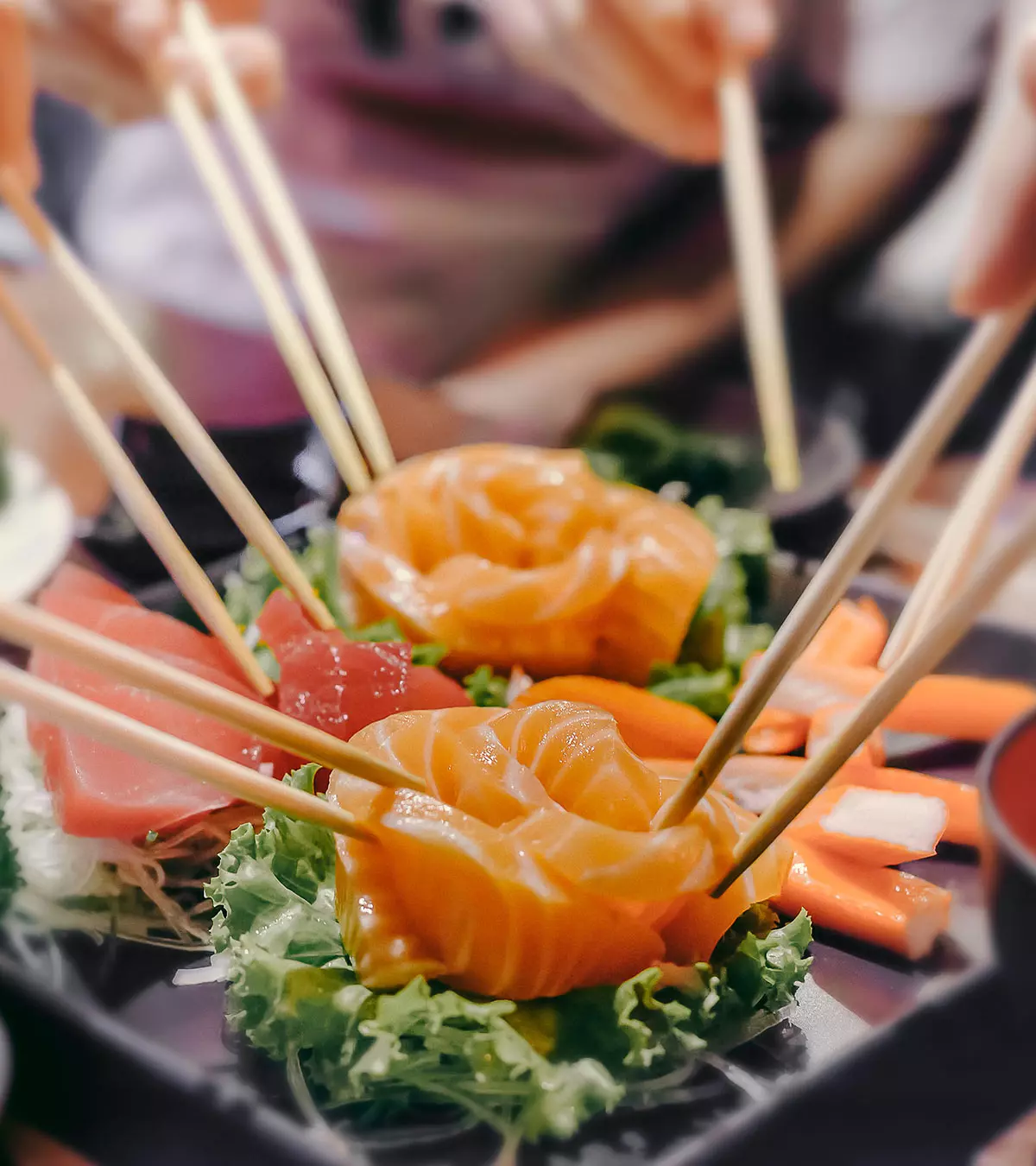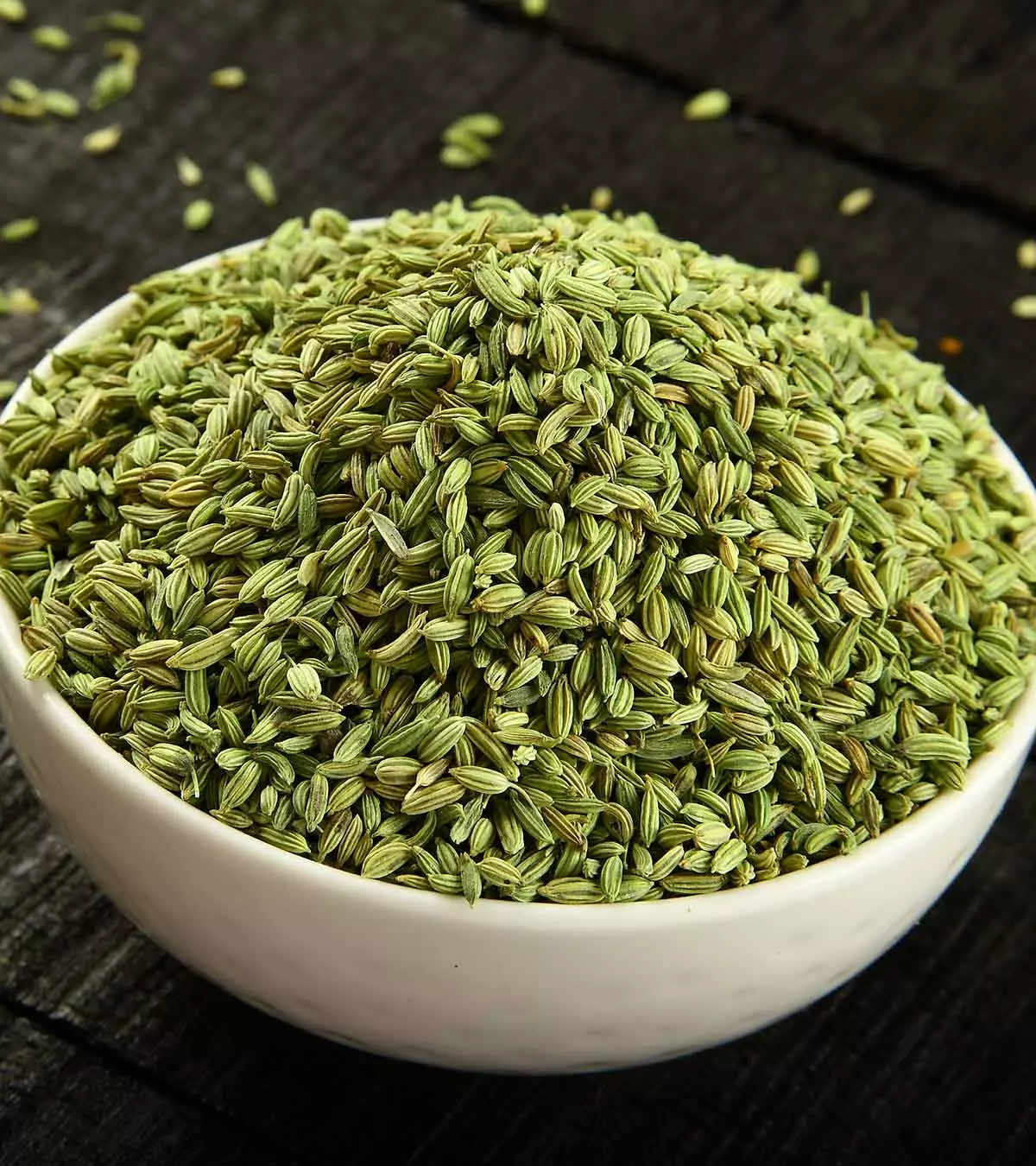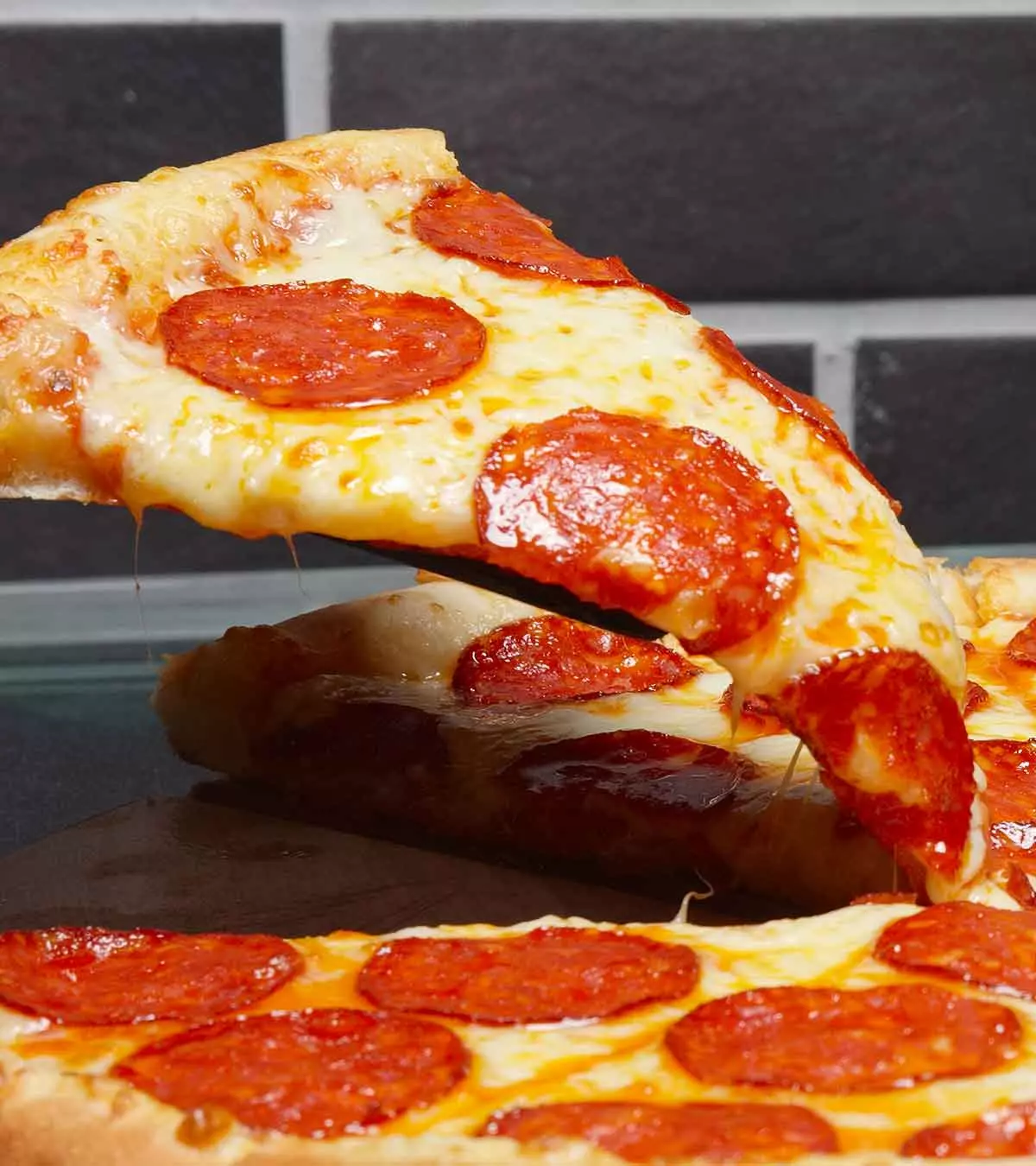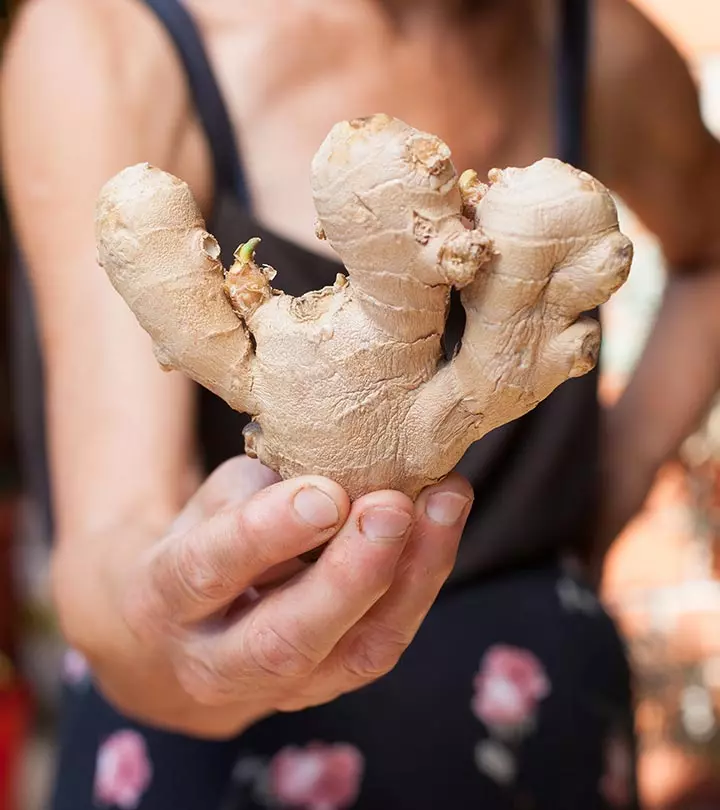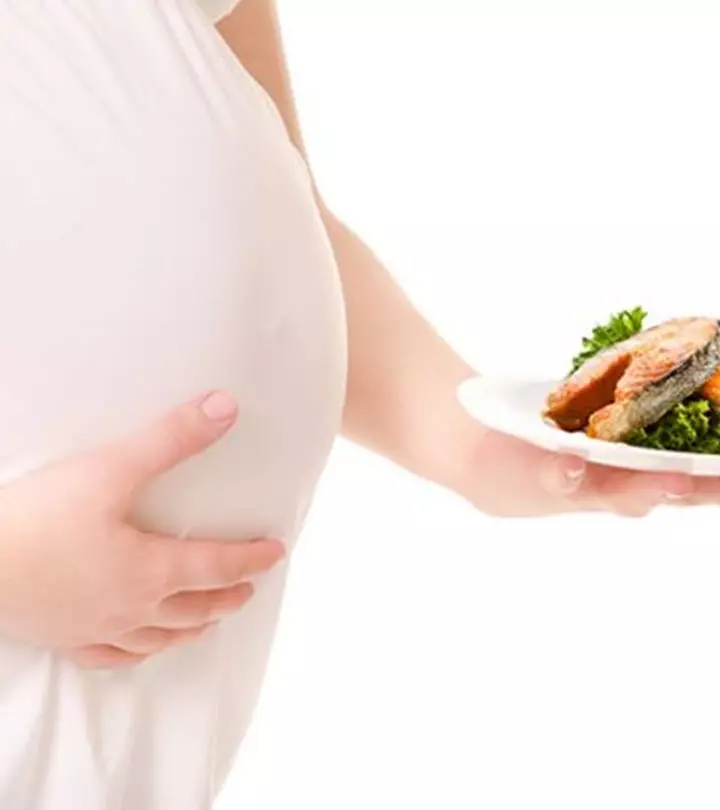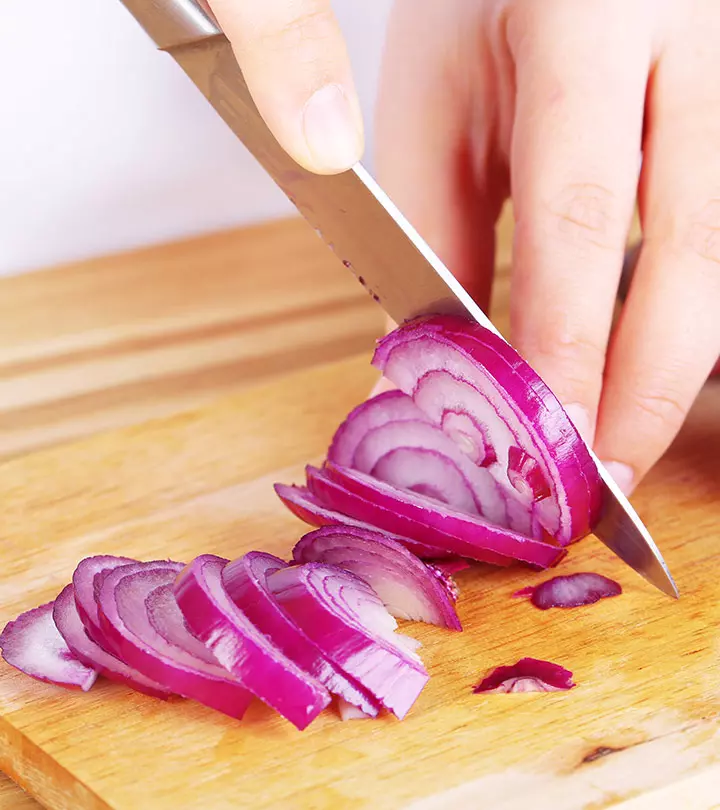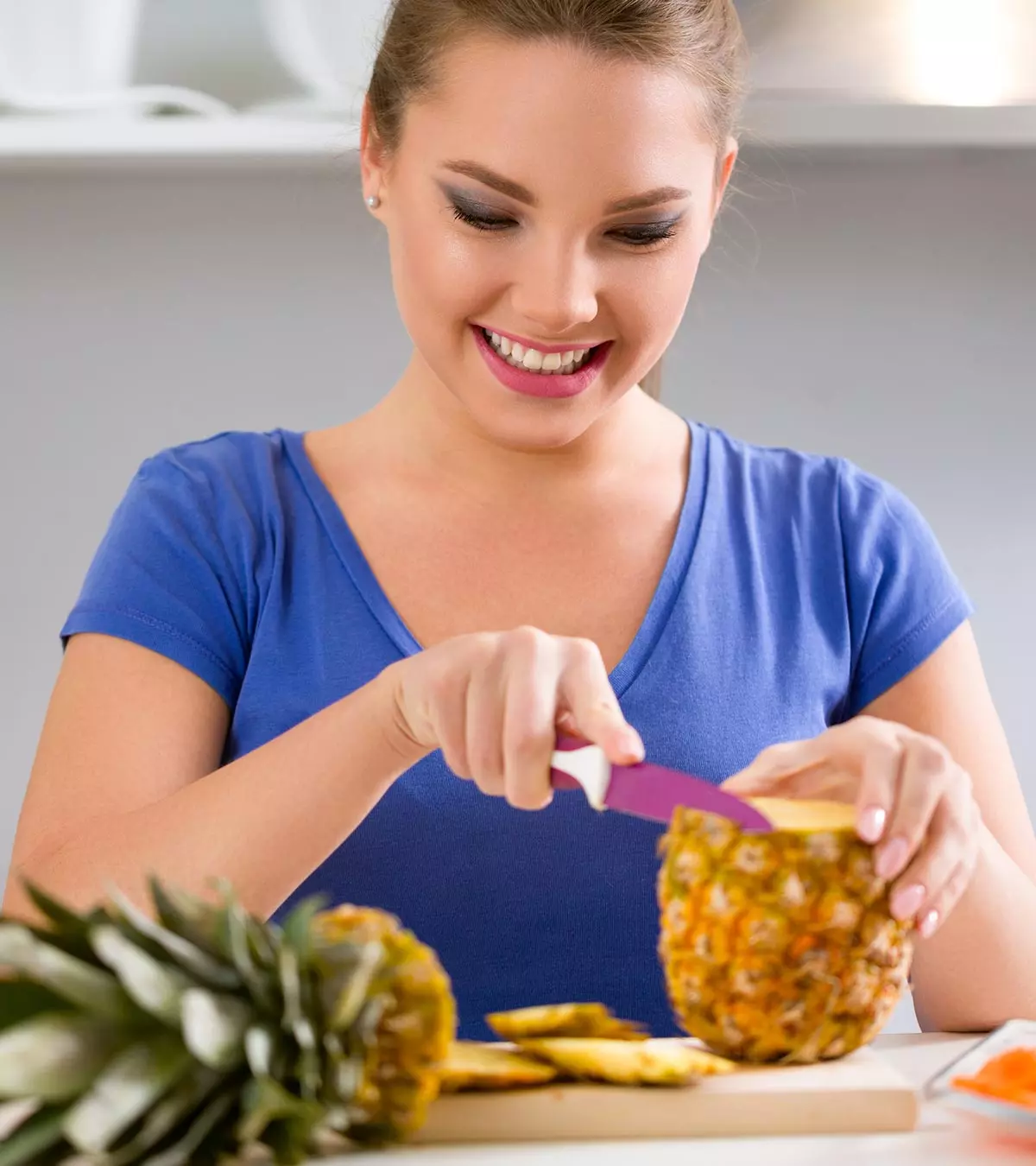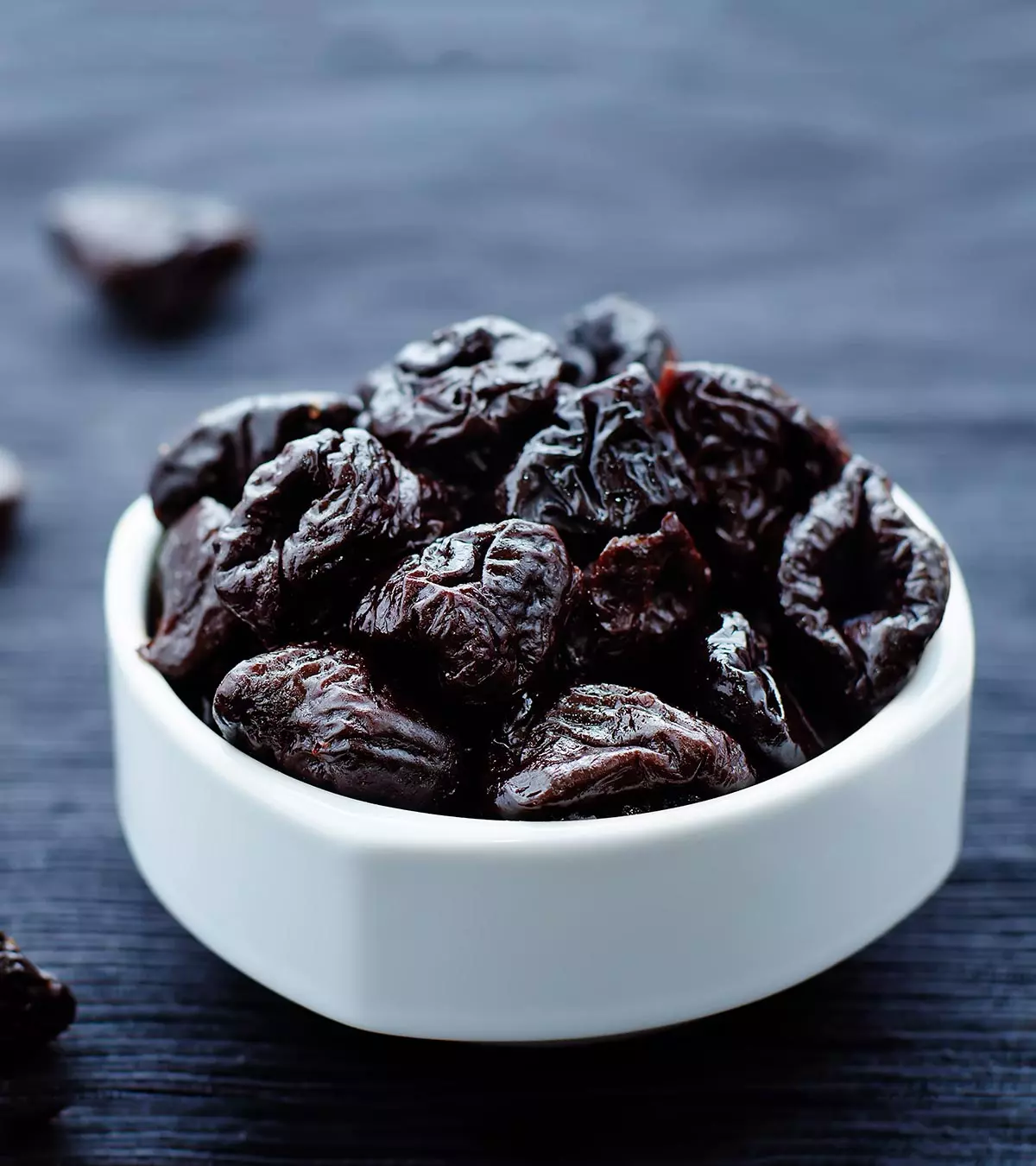
Prunes are dried European plums rich in vitamins, carbohydrates, and dietary fibers
. Since they are safe for your little ones, you could make prune puree for babies as a delicious, sweet snack. Its low salt and cholesterol content makes it an ideal dish for children. In addition, it provides them with several required nutrients while promoting healthy digestion.
If you are looking for ways to include prune into your baby’s diet, continue reading. This post discusses the health benefits of prune puree for babies, how to make it easily at home, and a list of tasty prune puree recipes ideal for infants.
Key Pointers
- Prunes are a safe and healthy snack for babies due to their low salt and cholesterol content, and rich in vitamins, dietary fibers, and carbohydrates.
- Prunes are a natural way to relieve constipation in babies and have no known allergy risks.
- Prunes have a low glycemic index, essential vitamins, and minerals, and are a good source of dietary fiber.
- Homemade prune puree is easy to make and can be refrigerated for up to three days.
- Prune puree can be combined with other foods such as yogurt, cranberries, peaches, apples, blueberries, or chicken to create delicious and healthy recipes for babies.
Health Benefits Of Prune Puree For Babies
Prunes are dried plums, a fruit belonging to the plant species Prunus domestica. These fruits are rich in dietary fiber, vitamin A, and vitamin C. They are low in cholesterol and sodium. “Prunes are a great way to relieve a baby’s constipation naturally,” says registered dietitian Brianne Thompson. Prunes or prune purees for infants don’t pose any allergy risks. Generally, prunes are a safe baby food that they can start consuming from 6 months old. Consult your pediatrician before beginning any solid foods.
 Did you know?
Did you know?
Image: Shutterstock
Prune Nutritional Facts
Some of the major nutritional benefits of prunes include:
- Prunes contain a small percentage of simple sugars, but do not increase blood sugar levels.
- They contain a high proportion of dietary fiber and fructose and have a low glycemic index of 29.
- Prunes are rich in carbohydrates and contain a small proportion of protein. They are one of the best sources of dietary fiber.
- Prunes are a good source of vitamin A, Vitamin C, and Vitamin K.
- Prunes contain a small proportion of essential minerals including potassium, copper, boron, and magnesium.
- Prunes contain 240 calories per 100 grams of serving.
How To Make Prune Puree For Baby?
Follow the simple process to prepare homemade prune puree for your baby:
- Wash the prunes with water.
- Add the washed prunes into a saucepan filled with water.

Image: Shutterstock
- Put the saucepan on medium flame and bring the water to boil.
- Reduce the heat after 10-15 minutes and check if the fruits are tender.
- Cool down the heated mixture to room temperature.
- Put the tender fruits into a food blender and obtain a smooth puree of prunes.
- You can add some water to dilute.
- The prune puree is ready for your baby.
- You can also refrigerate the prune puree for 2-3 days.
Easy To Make Prune Puree Recipes For Babies
1. Creamy Prune Puree With Apple Juice:
Mix a small amount of apple juice in prune puree. Blend the mixture in a food processor. Delicious prune puree mixed with apple juice is ready. You can serve the puree to your baby starting at six months.
 Experts say
Experts say2. Cranberry (Or Blueberry) Apple Prune Puree:

Image: Shutterstock
Add all the fruits into the water and put the contents into a saucepan. Bring mixture to a boil over medium-high heat. Check if the fruits are tender. Add more water. Allow the mixture to cool down. Put the mixture in a food processor and blend the mixture to obtain a smooth puree. You can also add yogurt to make the texture creamier. You can serve the puree to your baby starting at six months.
 Quick tip
Quick tip3. Chicken And Prune Puree:
Cut the prune into small even-sized pieces. Cut chicken breast into small pieces. Add the pieces of chicken and prune to a saucepan. Add the required amount of water. Cook the contents until the chicken is boiled. Transfer the mixture to a food processor. Blend the mixture and obtain a smooth puree, adding water if needed. You can serve the puree to your baby starting at six months.
Foods To Add to Homemade Prune Puree For Your Baby:
- Yogurt
- Cranberries
- Peaches

Image: Shutterstock
- Apples
- Blueberries
- Chicken
Frequently Asked Questions
1. Do prunes upset a baby’s stomach?
Prunes can sometimes cause upset stomachs in babies, but this is not always the case. Some babies may have an adverse reaction to the natural sugar and fiber content of prunes, while others may be able to tolerate them without any issues. However, if consumed excessively, the sorbitol and dietary fiber content in prunes may upset a baby’s stomach (3) (4).
2. How often can I give my baby prunes?
To avoid any adverse reactions, it is advised to restrict prune puree or prune juice intake to 4 ounces (120 mL) daily and limit serving to a maximum of two times per day (5).
3. Can prune puree be used as a substitute for other baby foods?
Prune puree may be included as part of the baby’s diet, along with other baby foods. However, relying purely on prune puree for the baby’s daily intake may not be advisable as it may lead to instances of overfeeding the puree to the baby.
4. Can prune puree be frozen for later use?
Yes, fresh-made prune puree may be frozen for up to three months. You may freeze small scoops of the puree in an ice cube tray or cookie sheet. However, it is necessary to ensure that you cover the tray with foil until its frozen, and then you may transfer the frozen cubes to an air-tight container and continue freezing them. Avoid thawing vegetable or fruit puree for babies at room temperature and refreezing thawed frozen puree as these may give rise to contamination (6).
Prunes or dried plums are baby foods that help with constipation as they are excellent sources of dietary fiber. They also contain carbohydrates, vitamins, and essential minerals, making them ideal baby foods. Make prunes or plum baby food recipes part of a balanced diet once you start solid foods for your baby. You may prepare delicious prune puree for babies by mixing it with apple juice or cranberries. You may increase the protein content of the dish by adding blended fried chicken to prune puree. The healthy recipes mentioned here are great for your baby’s health.
Infographic: What Are The Advantages Of Giving Prune Puree To Babies
Once your baby reaches six months, you can offer them prunes in pureed form. They are nutrient-loaded dried plums that can provide several essential nutrients required for babies’ healthy growth and development. Check out the infographic below to learn about the health benefits of prunes for babies.

Illustration: Momjunction Design Team
Illustration: Simple Steps To Prepare Prune Puree For Babies

Image: Stable Diffusion/MomJunction Design Team
References
- Prunes: No Longer a Laughing Matter.
https://www.ift.org/news-and-publications/food-technology-magazine/issues/2017/may/columns/food-medicine-and-health-prunes-health-benefits - Where We Stand: Fruit Juice for Children.
https://www.healthychildren.org/English/healthy-living/nutrition/Pages/Where-We-Stand-Fruit-Juice.aspx - Kauko K. Mäkinen; (2016); Gastrointestinal Disturbances Associated with the Consumption of Sugar Alcohols with Special Consideration of Xylitol: Scientific Review and Instructions for Dentists and Other Health-Care Professionals
https://www.ncbi.nlm.nih.gov/pmc/articles/PMC5093271/ - M Stacewicz-Sapuntzakis et al.; (2001); Chemical composition and potential health effects of prunes: a functional food?
https://pubmed.ncbi.nlm.nih.gov/11401245/ - Constipation.
https://www.seattlechildrens.org/conditions/a-z/constipation/ - Fresh and Easy: How to Make Pureed Baby Food; Utah State University
https://digitalcommons.usu.edu/cgi/viewcontent.cgi?article=2909&context=extension_curall
- Prunes: No Longer a Laughing Matter.
Community Experiences
Join the conversation and become a part of our nurturing community! Share your stories, experiences, and insights to connect with fellow parents.
Read full bio of Brianne Thompson
Read full bio of Jessica Albert
Read full bio of Swati Patwal
Read full bio of Vidya Tadapatri









